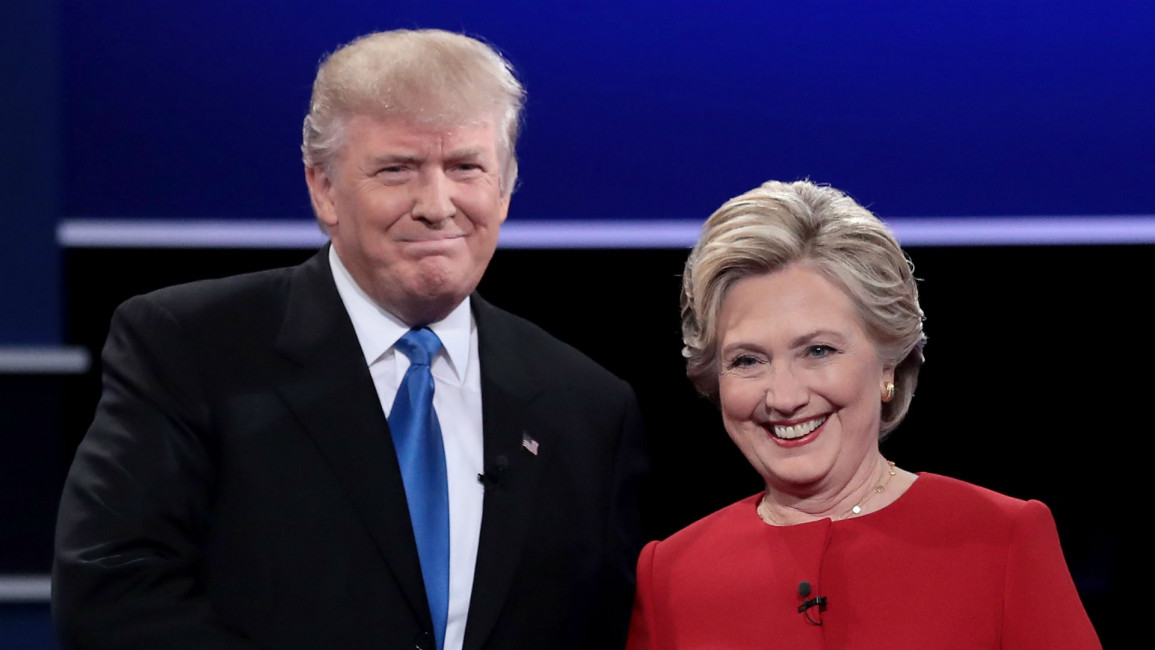
Ignorance and intervention: Trump and Clinton debate Syria
Aleppo was a key issue in the second debate between the Democratic nominee Clinton and the Republican nominee Trump. Both tried to answer the question of what the next president will do to end the humanitarian crisis in Aleppo.
This of course included a sub-question on what the next president would do with Russia in Syria, given the level of military Russian intervention in the country, and the State Department's accusations of war crimes. Both Clinton and Trump's answers were telling of the contrast in the candidates' positions over Syria.
Trump said "I don't like Assad at all, but Assad is killing ISIS. Russia is killing ISIS. And Iran is killing ISIS. And those three have now lined up because of our weak foreign policy... I think you have to knock out ISIS. Right now, Syria is fighting ISIS. We have people that want to fight both at the same time."
Trump is still harbouring the notion that Russia, Assad and Iran are fighting IS, despite of all the evidence that there are no Russian bombs falling on IS stronghold Raqqa. Furthermore, there are no Iranian militias (or other militias supported by Iran) fighting in Syria on any of the many fronts with IS, just the Syrian armed opposition.
This demonstrates that as Josh Rogin from The Washington Post pointed out, "Trump doesn't grasp the basic facts of the situation, doesn't understand the history of the conflict and doesn't seem curious enough to figure it out".
On the other hand, when Clinton answered the Syria question during the debate, she said "the situation in Syria is catastrophic. And every day that goes by, we see the results of the regime, Assad in partnership with the Iranians on the ground, the Russians in the air, bombarding places, in particular Aleppo… And there is a determined effort by the Russian air force to destroy Aleppo in order to eliminate the last of the Syrian rebels who are really holding out against the Assad regime.
 |
Syrians have learned not to expect much from the international community |  |
Russia hasn't paid any attention to ISIS. They're interested in keeping Assad in power. So I, when I was secretary of state, advocated and I advocate today a no-fly zone and safe zones. We need some leverage with the Russians, because they are not going to come to the negotiating table for a diplomatic resolution, unless there is some leverage over them. And we have to work more closely with our partners and allies on the ground."
Clinton repeated the demands of the Syrian opposition who have been calling for this for almost five years since the beginning of the conflict. The Obama administration however, has decided to ignore them and keep "reviewing" the options, with no decision whatsoever to end the suffering of the Syrian people.
 |
A precedent for conducting a humanitarian intervention outside the auspices of the Security Council already exists |  |
Syrian government forces along with the Russian air force have routinely and intentionally bombarded hospitals, medical centres and densely populated civilian areas in Aleppo and Hama. All of these acts are considered crimes against humanity as defined by the Rome Statute that established the International Criminal Court (ICC) in 2002.
The United States, along with the UK and France, decided to return to the Security Council, where Russia exercised its veto for the fifth time leaving the US with no diplomatic options.
I believe that the Friends of Syria group - established specifically for the sake of creating a venue outside of the United Nations in which an international coalition could begin considering actions that would protect the lives of Syrian civilians - has offered only words of sympathy and empty promises to the Syrian people.
 |
The Friends of Syria group has offered only words of sympathy and empty promises to the Syrian people |  |
Syrians have learned not to expect much from the international community after many conferences have concluded without the adoption of meaningful decisions. They consider these gatherings, like Friends of Syria meetings, as nothing more than opportunities for giving sympathetic speeches.
The new leadership in the White House should work with EU allies to achieve the main goals for which the Friends of Syria group was initially established: To conduct an international humanitarian intervention to protect Syrian civilians.
In ideal circumstances, a humanitarian intervention – the use of force for humanitarian means – would be instituted via the UN Security Council. Unfortunately, Russian veto power stands in the way of this option.
Some form of intervention could absolutely be instituted either under the umbrella of the Friends of Syria group or some other international coalition.
Dr Radwan Ziadeh is a Senior Middle East Analyst at the Arab Center Washington DC. Follow him on Twitter: @radwanziadeh
Opinions expressed in this article remain those of the author and do not necessarily represent those of The New Arab, its editorial board or staff.




